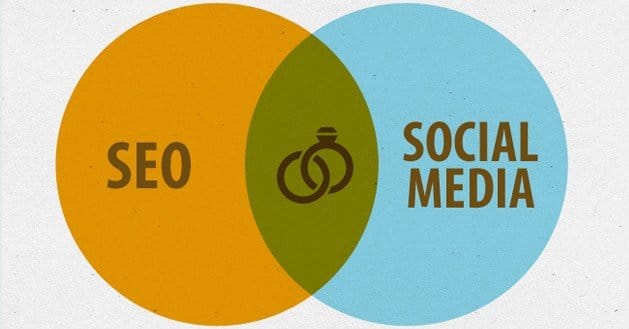 Written by ContentPowered.com
Written by ContentPowered.com
SEO is a world of mystery in which theories are speculated, studied, and only rarely confirmed or denied. May so-called “experts” claim to know the exact keys to getting well-ranked, but often the only data to confirm their theories is their own. When some people first started theorizing that social data affects search ranking, the theory seemed plausible, but was unproven. In the past couple years, the data on the subject has grown, and we now know that social signals definitely and directly affect search ranking.
Some parts of this make sense. Even without confirmation that search engines look at social websites in particular, we can reason that a tweet with a link is a cold, hard backlink – and everyone knows links are important for SEO. What about Facebook? Can “likes” really translate into SEO power? This theory has taken a lot longer to prove, but evidence now suggests that search engines like Google and Bing look specifically at this data to determine a page’s rank in their search data. In fact, one study even suggested that Facebook shares are now more important than regular backlinks. As an interesting side note, they also noted that keywords can have a negative impact on SEO ranking, probably due to their correlation with spam.
This data is revolutionary. When SEO first evolved, keywords were considered to be the key element. As spammers figured out how to game the system, keywords decreased in relevance and links emerged as the vital determining factor in page rank. Now, in the age of social networking, search engines have realized they actually have access to data that shows which websites people really use and like. Similar to keywords and links, social clout can be purchased or built artificially, to some degree. Social data is currently the most relevant, people centric data we have – and so search engines use this to their advantage.
As a web publisher, you can also use this to your advantage. Data shows that conversations on Facebook, Twitter, and Google+ can all affect your search engine ranking. Fortunately, each one of the services allows for accounts to be created for free. Facebook is a great place to build conversations about your websites or product. Although you can’t directly force likes, you can essentially buy them. Money spent on advertising is directly correlated with likes. As more people like your page, their like is broadcast to their friends, who are more likely to like your page. In this way, each like actually exposes your Facebook page to hundreds more users, and increases your chances of being liked again, and thus building more SEO power.
So we’ve determined that social signals definitely correlate with your ranking in Internet search results. Many SEO companies offer easy and relatively inexpensive ways to purchase social network power through likes, shares, and tweets. You can accelerate your page’s rank and jump ahead of your competitors today by using this new social networking data to your website or company’s advantage.

This has been a major shift. I remember when keywords were the #1 important thing about SEO. Hard to keep up with the changing algorithms, you know what I mean?